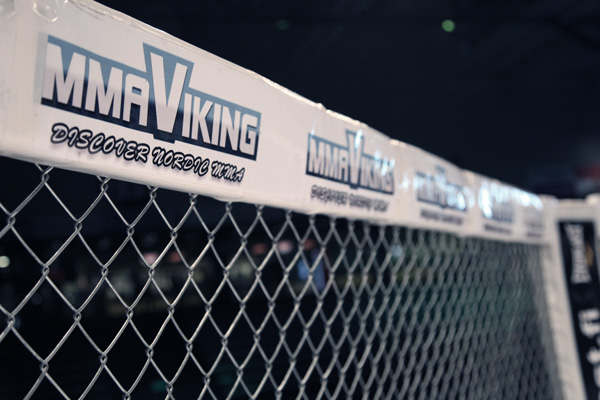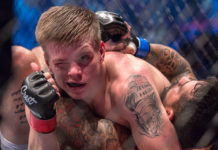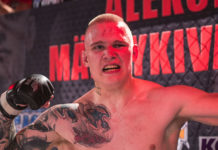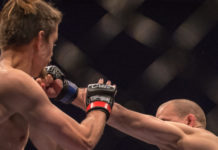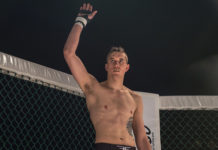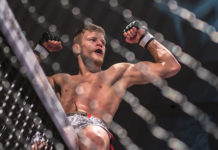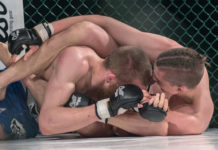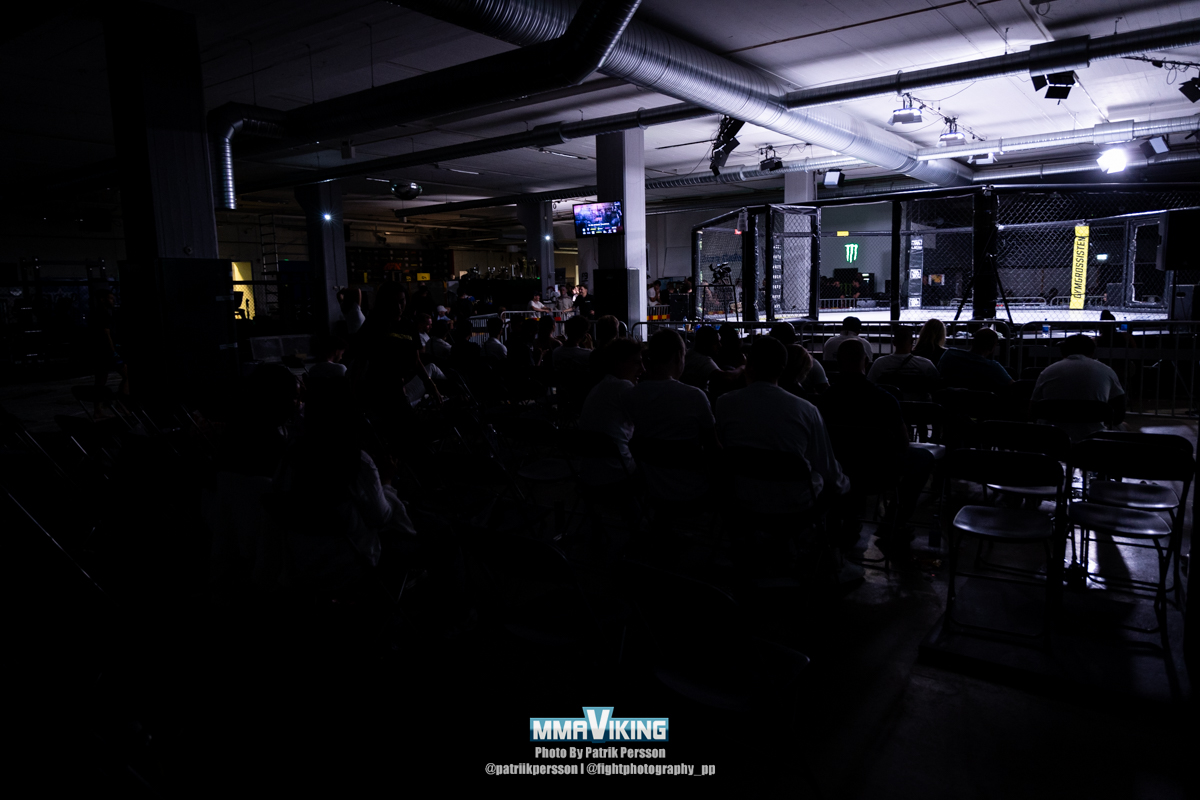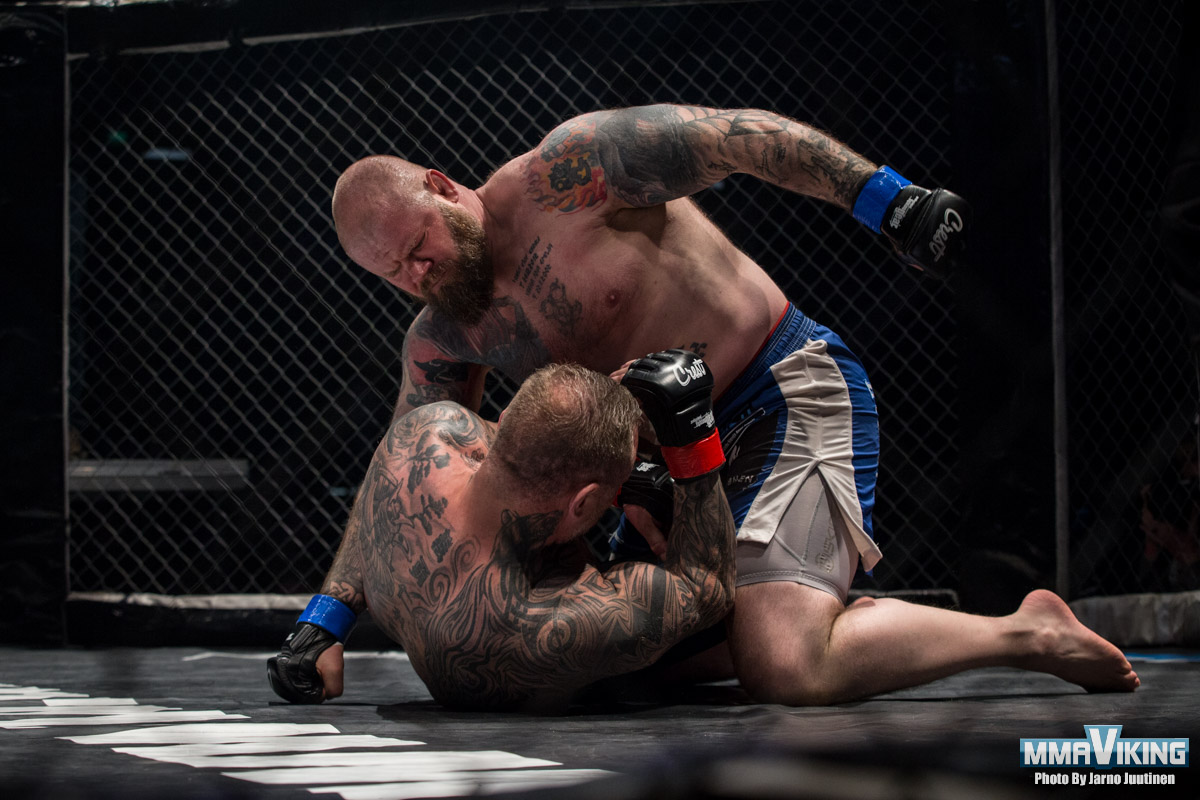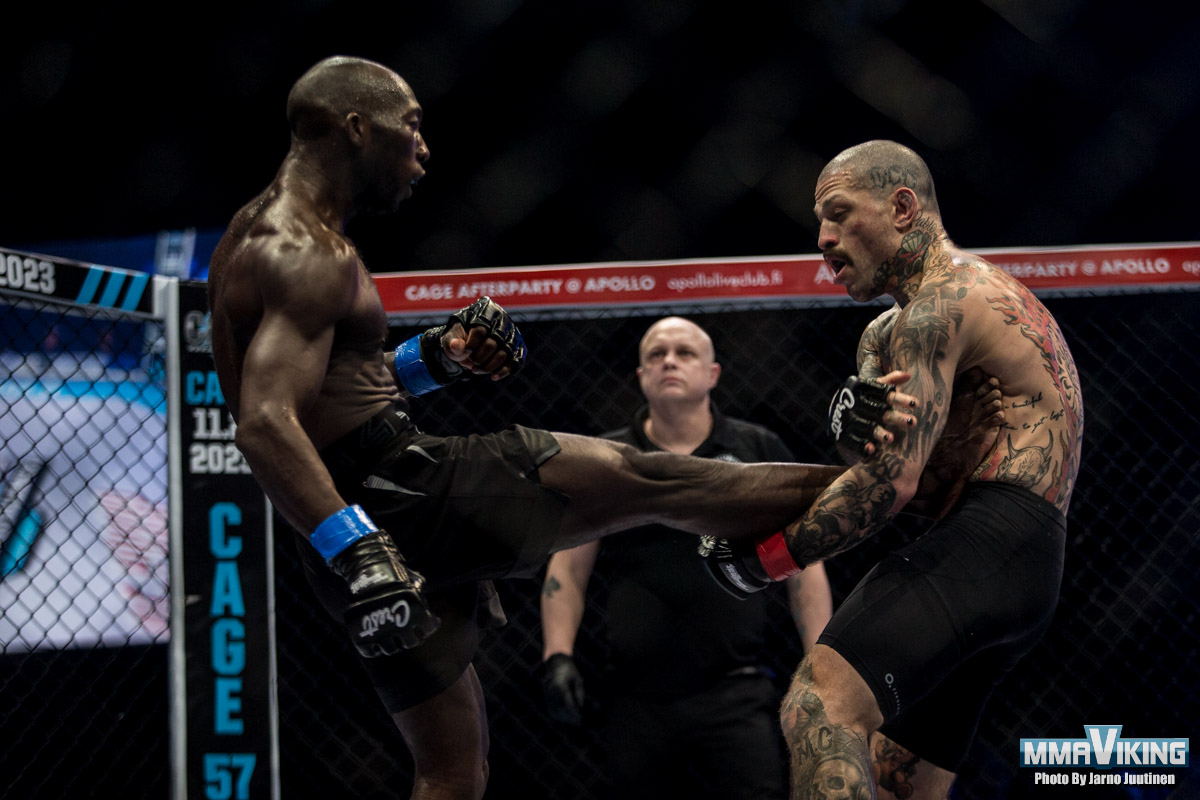Mixed martial arts definitely draws interesting characters to the sport and MMA Team 300‘s head coach Timo Lampen is definitely one of them. Me and Timo sat down for a cup of coffee and talked pretty much about everything. Keep on reading to find out about his history, his quite unique training methods with his fighters and about being a promoter of StandUpWar.
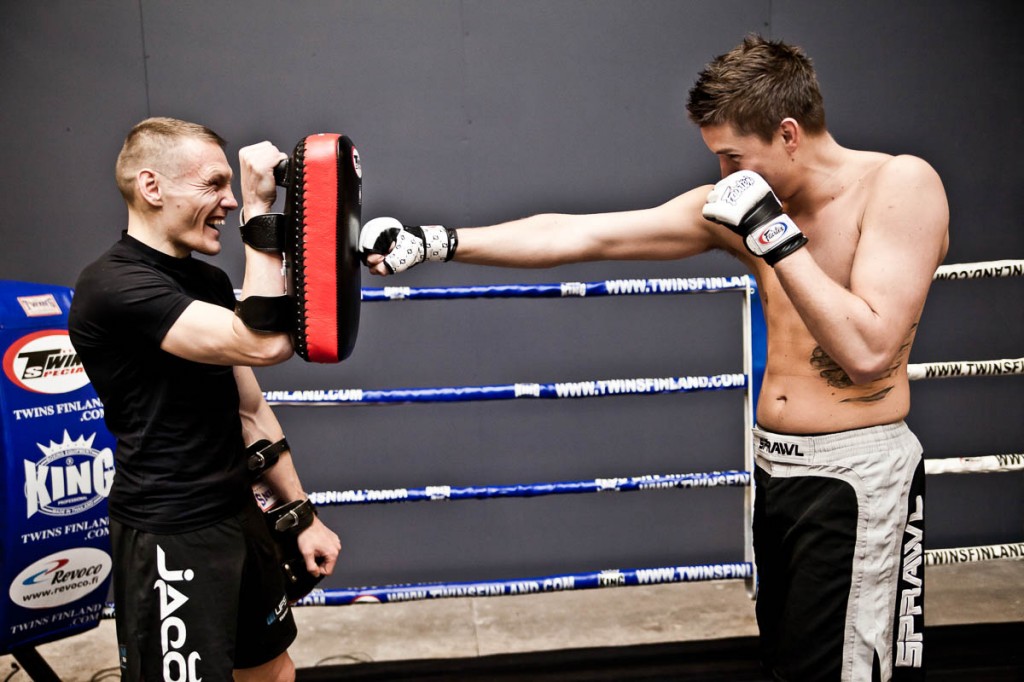
©Jarkko Penttinen
So tell me, how did it all start for you. How did you start your combat sports career?
Well, I’ve been athletic my whole life. I am from a poor family so we really didn’t have that much toys and what not lying around. So just playing with my friends usually meant different sports, we ran, swam, played football and wrestled around. My combat sports career started with kickboxing in 1988, I trained for sometime but I didn’t really feel the sport and a small injury that I received pushed me away from that sport. In 1990 I started playing competitive chess and it’s been a part of my life ever since. In 1992 I got into Muay Thai and I stayed on that road, I really fell in love with Muay Thai. All the techniques they showed were super effective and just pure, nothing fancy just pure combat sports. I had the privilege to train with one of the Muay Thai legends in Finland, Kai Mustonen. I mean he is the man that brought thaiboxing to Finland. I also pursued a professional career in Muay Thai or I don’t know if I can really call it a professional career because there were so few professional fights going on, but I did set my goal to the World Championship as an amateur.
I was fascinated in being the world’s best at a certain point at a certain weight class, not because I could say to everyone that I’m a world champ but because I love to challenge myself constantly and I felt like I could achieve my goal. Unfortunately that dream didn’t come true, but I don’t regret anything. I learned so much from that time period of my life. I mean back then you didn’t have the internet, we knew so little about proper nutrition, proper muscle maintenance. If you wanted to know something you would have to go to the library to browse through age old books or have someone explain to you what they think works the best. We just trained and trained, twice a day and every session would be just going super hard. But going through that time period as an athlete has helped me so much as a coach nowadays. I know the mistakes I did in my training and I know to avoid these mistakes. Now we focus a lot of tactics and a lot on cardio. Even though in combat sports you do get hit, that’s not the main part about it, being able to take a punch. I do have a thaiboxing background, but I in now way try to just make standup fighters at our gym. It’s my main coaching tool of course, but I can’t stress this enough that everyone has their strong points and you really have to work towards that. Of course you have to be well rounded in every aspect, but each one of us has our strengths and weaknesses.
One thing that I really concentrate is the body types of our fighters, Kennet is a perfect example. He has very long limbs and he is a tall fighter for his weight class so we focus a lot on his reach and his ability to find submissions on the ground from positions that are really surprising for a lot of guys. I like to have a really personal relationship with all my fighters that I have. One of the most important things in my coaching is the ability to give feedback, be it negative or positive. It’s super important as a coach and as a fighter to focus on the mistakes that you might do during training and to make sure that you do not do them in a fight. And you can’t just give the feedback the same way to everyone, there are guys in my gym that needs to yelled at every now and then, but there’s also girls that would crumble if you yelled at them. By treating everyone differently and really knowing your fighters is a huge asset for a coach. And one thing that I focus on is making sure that my fighters do not train too hard, sometimes I really have to say to the guys that “Hey don’t come to the gym for the next couple of sessions, you really need to rest now”.
Too often you see a super talented fighter just fading out from the scene and I think most of the time it’s due to the fact of over training. You don’t make that much money in MMA now and if you think that you train two times a day, five to six days a week and also go to work or school and still try to have a life. All fighters know that it’s almost impossible to balance. I strive to find that balance for my fighters. When I decided to be a coach, I knew that I must do it as a full time professional. To be able to coach as I want, it would be impossible to have a job and then go coach in the evenings every now and then. Therefor I’m one in a few in Finland, this is my full-time job. And our gym has grown a lot in the past year, we have so many good young amateur fighters and I bet we will get more as we have new classes starting in the fall.
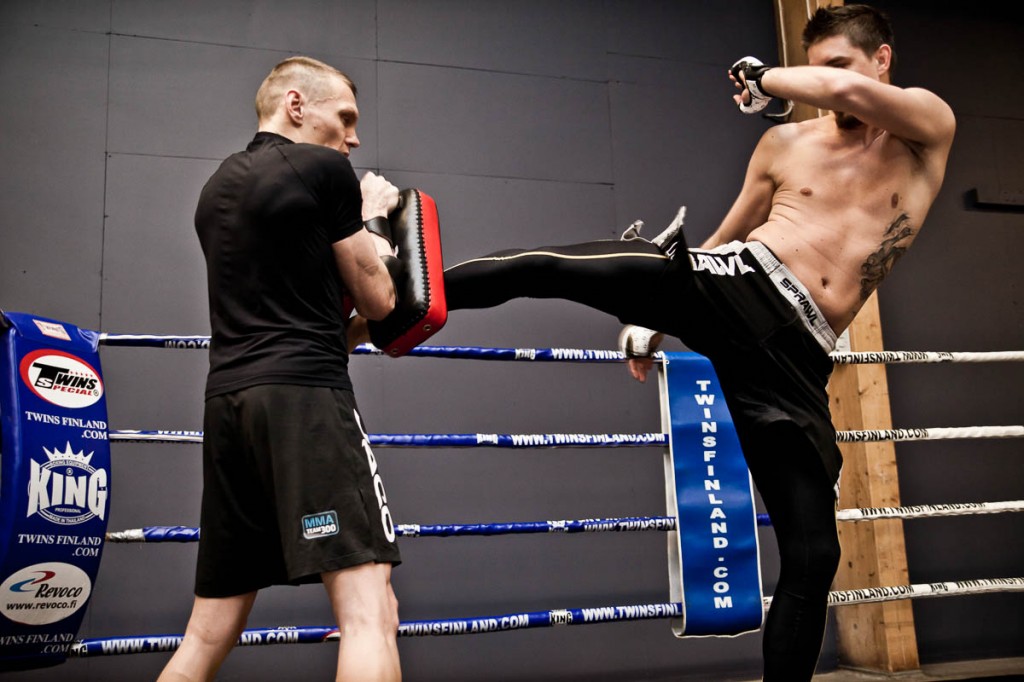
©Jarkko Penttinen
Are there any fights coming up for your fighters?
There are a couple that I can talk about, Kai Karar has now signed for a second fight for the autumn. He will be fighting at Lohja Fight Night in october against Ville Heikkonen. It will be an interesting fight for sure, Heikkonen is a beast on the ground. I haven’t really worked through an game plan yet as Kai is going to be also fighting at StandUpWar. And then Marko Patteri will be fighting also in october at Fight For Glory in Turku. Unfortunately I won’t be able to attend to the event, I’ll have my first vacation in almost two years during that week. Couple more fights have been talked about for the fall, but I can’t give you any information about those just yet. I want that my guys have two fights in the fall and two fights in the spring, four fights a year.
Do you still play chess and do you feel that it has helped you as a coach?
Yes I still play chess and I still compete also. Our chess team placed second in the finnish national championships. I can’t play as much as I used to and I lost my match against an opponent I usually win against. My chess team is going to go play in the European Cup in october, but I had to say no to that trip. Luckily the good thing about chess is that you can still play it when you’re older, as long as your head still works. I use a lot of tricks in coaching that I’ve learned in playing chess, I really think that all athletes and coaches should play at least a little bit of chess. It helps so much in analyzing every fighter, every move and every strategy. The way you think in playing chess is so unique that it helps a lot when coming up with game plans. Not just like playing with your fighters strengths, but also coming up with plan B, C and so forth. There is another thinking human on the other side of the cage who is also going to have multiple ways figured out to defeat you.
You just had Finland’s first 10th Planet Jiu-Jitsu seminar at your gym, how has the feedback been and how do you as a coach feel about the system?
First of all when we booked the seminar and I started talking with Magnus Hansson, I expected to receive world class coaching but he turned out to be even more than what I expected. It was truly an honor to see him teach for a day, I learned so much about Jiu-Jitsu and about coaching in a day. It was just mind blowing to see him work. We’re definitely going be working towards getting an official license as an official planet of the system. We don’t really train BJJ with a GI so 10th planet Jiu-Jitsu really works great for us and especially good with MMA. I like the style a lot because it’s really tight on the ground, you really need to control your opponent and make it impossible for your opponent to strike. The people at our gym absolutely loved the stuff Magnus showed at the seminar, for sure we will keep working together.
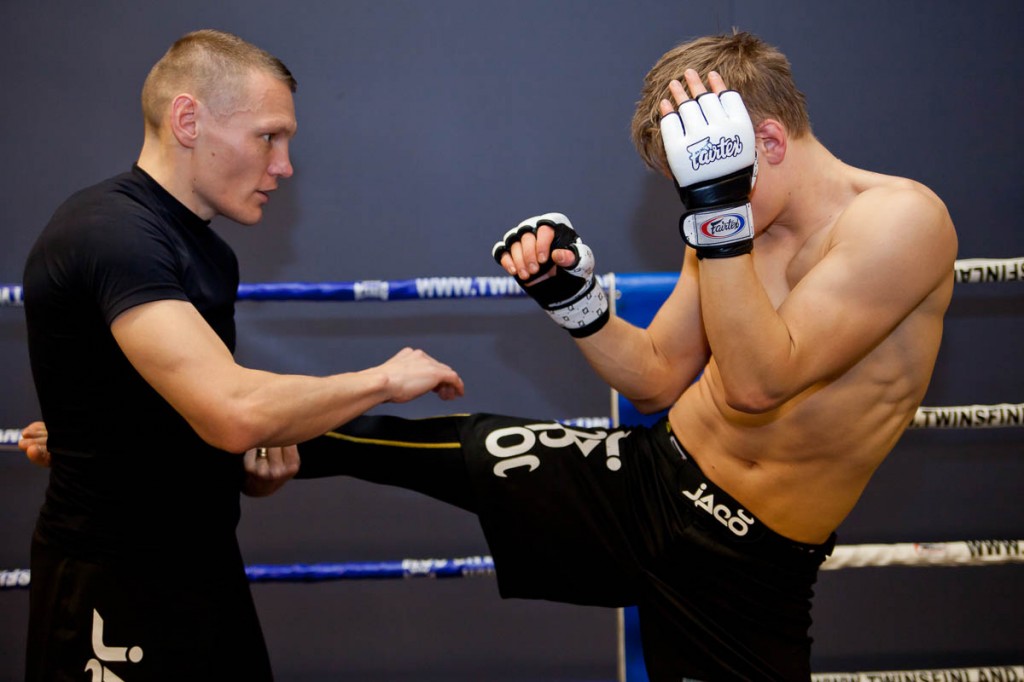
©Jarkko Penttinen
Future visions for MMA?
What I’d like to improve in Finland is the mutual respect between fighters that go to different gyms to train. I think it would really improve the skill of all fighters around the country if people would welcome other fighters more openly to their gyms to train. People do represent different gyms but they are all athletes in the same sport and everyone can learn something new from everyone. I think there’s still this mindset in MMA that it’s not a competition as much as a fight. Even though MMA is an combat sport, there should be nothing personal about striking each other. The main thing that I would like to change in MMA is the rules in amateur fights. They should definitely be allowed to strike on the ground, especially now that there’s actual amateur world championships and strikes are allowed there! We really can’t send athletes to compete in the world championships if they’ve never experienced a match where ground strikes are allowed!
Stay tuned for part two of my interview with Timo where we focus about his life as a promoter. Timo is going through some busy times now as his event StandUpWar is going to kickstart the finnish MMA fall season in a couple of weeks.

